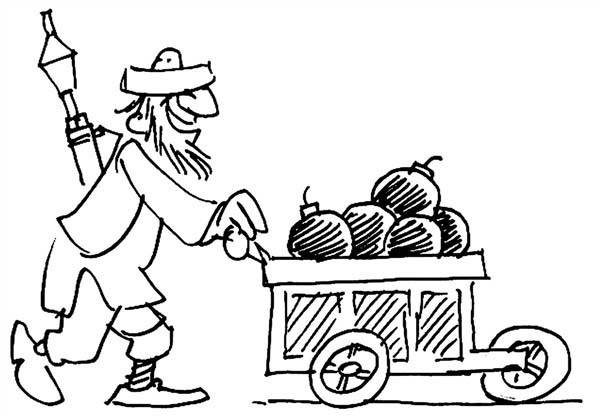
Peace or profits
Sir,
It is not that the civil and military are not on the same page. It is just that they are no pages in the book. The only strategy for now is to wait for the next attack, the next bomb blast or the next act of terrorism. The only response is to do more of the same, yet more vociferously, raise the level of rhetoric, summon yet more meetings, appoint yet more committees and issue yet more directives. Everything is reactive and repetitive. No wonder Einstein used such a harsh term for ‘doing the same thing over and over again and expecting different results’.
Over 60,000 innocent civilians have lost their lives in a war they never fought, and to an enemy they never knew. Often blown to smithereens, killed, kidnapped or mugged for not sharing the same ideology, being a public figure or simply carrying a cell phone. Clearly there is something grotesquely incorrect about our approach to fighting crime and terrorism.
At least four fundamental concepts need to be addressed at the outset if the state of Pakistan is serious about tackling militancy. These are, providing equal security to all citizens is the business of the state and not that of private gangs, guards or goons; the policy of an endless reactive warfare must be replaced by a scientific and proactive approach of demanding surrender of some 20 million weapons held by civilians; all militant groups, regardless of their ideology or patronage, be disbanded, and increasing the height of walls, building more barriers, hiring more guards, adding more weapons and creating more fortifications is a corporate, capitalistic and counterproductive approach. It makes the state shrink and furthers the space enjoyed by terrorists.
Sane nations around the world have opted to eliminate or control weapons as a first step towards elimination of crime and militancy. In contrast, Pakistan has chosen to promote a free-for-all weapon policy. It has neither disbanded (as required by Article 256 of the Constitution) scores of existing private, political and sectarian ‘militias’, nor demanded surrender of millions of illegal and quasi legal weapons in the hands of civilians. Weapon licenses continue to be issued and the never-ending last date for computerisation of weapons continues to be stretched as a mark of magnanimity towards militants. The most recent extension now pushes this date from December 2015 to December 2016.
“Slavery wasn’t a crisis for British and American elites until abolitionism turned it into one. Apartheid wasn’t a crisis until the anti-apartheid movement turned it into one,” writes Naomi Klein in her book, This Changes Everything. What is needed in Pakistan is a similar people’s social movement for abolition of weapons. Our state has become a helpless hostage to gun-wielding individuals and ‘militias’. Must we not break away from a system that makes access to automatic weapons easier than access to decent schooling or clean drinking water?
Naeem Sadiq,
Karachi.
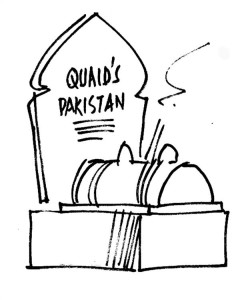
Tiresome tale
Sir,
The problem is not with men like Lord Nair who migrated and through sheer hard work attained prominence in the UK, nor with billionaire Shahid Khan who lives in the US, but those who make fortunes in Pakistan only to abandon it for escaping accountability. A large majority of expatriate Pakistanis, coming from humble backgrounds, who excelled academically or had specialized skills were forced to seek their livelihoods abroad, because jobs were never given on merit in Pakistan, but always on recommendations, and they continue to repatriate their savings to sustain their families back home.
It is members of the ruling elite, traders and top civil or uniformed public officeholders, having benefitted the most, acquired benefits of prime real estate allotments, yet chose to abandon this country and seek foreign nationalities, the moment their tenures are finished or any attempt is made to hold them accountable for grave financial white collar crimes. They manage to flee abroad and seek refuge in their new adopted countries. It is a never ending saga of deceit by design, bleeding this country economically like termites, and the powerful nexus of such dual nationality in corridors of power that they continue to get away, nor is any attempt made to stop this abuse.
Ali Malik,
Lahore.
Jinnah
Sir,
“Few individuals significantly alter the course of history; fewer will modify the map of the world. Hardly anyone can be credited with the creating a nation-state Muhammad Ali Jinnah did all three.” - Stanley Wolpert.
There can be no better sketch than the above lines of Muhammad Ali Jinnah, the founder of Pakistan. His 68th death anniversary was commemorated on the 11th of September. Jinnah went from an Indian nationalist and a believer of Hindu-Muslim unity to a Muslim nationalist; this journey was full of ups and downs. Hailing from an upper middle class business-oriented family; Jinnah went to study law in England. His was a great legal mind. He excelled in his profession and became one of the finest barristers in British India. Jinnah’s early political inspirations were people like Gokhle. Jinnah started as a staunch proponent of Hindu-Muslim unity and headed the Indian National Congress, His departure from Congress was primarily due to the party’s agitative center left street politics, whereas Jinnah believed in peaceful political struggle within the sphere of the law. It was Jinnah who pressed the British to give the Indian people their legal rights and compelled colonials to treat locals fairly and equally. He resigned from the viceroy council after the British failed to honour their promise to grant freedom after the first World War. Jinnah stood for the Indian soldiers; the British finally had to induct Indian officers in the British Indian Army in 1925. He distanced himself from Pan Islamist Khilafat Movement supported by Gandhi. He called upon the people not to resort to violence. The movement ended in disaster for Indian Muslims. Jinnah was flexible yet firm. The Muslim league, under him, propounded the Two Nation Theory, which is based on Muslim nationalism within the Indian subcontinent. Jinnah faced stern opposition from Pan Islamists who believed in a larger community of Muslims compared to the limited concept of Muslim nationalism. His acceptance of “grouping scheme” after the 1946 elections is a great evidence of his flexibility and solution finding nature, whereas his refusal to accept Lord Mountbatten as the first Governor General of Pakistan is proof of his firmness on principles. His untimely demise is beyond a doubt the biggest loss to Pakistan; had he lived longer, Pakistan would be a different country. God bless his soul.
Malik Atif Mahmood Majoka,
Melbourne.
Ageing issue
Sir,
Aging is now increasing at a global level and governments are paying very little or no attention to aging-related issues. In 2014, the United Nations launched a Millennium Development Goals Report and emphasized the need of urgent attention to the issue of global aging. Though the UN Millennium Development Goals were not disaggregated properly about the old age, but it mentioned that global aging needed attention. Now the 17 important Sustainable Development Goals (SDGs) are the responsibility of each government. These goals have not clearly indicated about the aging population all around the globe. Global poverty has been increased manifold and the students out of school ratio due to poverty-related issues has increased. Around 1 billion people go hungry every day around the globe. A United Nations figure shows that poverty will further increase due to inequality and food security-related issues. The segment that bears the brunt of this issue will be mostly the aging population and females. The UN can debate aging issues under the framework of SDGs in the next forthcoming session of the Assembly to be held this month. A world safe for all age groups is a must to achieve sustainability.
Aijaz Ali Khuwaja,
Karachi.
Muka Chowk
Sir,
This letter is in reference to the news of slogans and photographs regarding Altaf Hussain being stripped off Muka Chowk, published in the national print media on August 26. The Muka Chock was built symbolizing the fist of the first prime minister and the right hand man of the Quaid, Shaheed-e-Millat Liaquat Ali Khan; he raised his fist before a crowd of more than 150,000, which had gathered in front of his residence in Karachi, saying “from today this shall be the symbol of our national determination”. The fist of Liaquat Ali symbolizes not only the unity of the five provinces of Pakistan, but a stern warning to the enemies of the country. His fist became such a symbol that then Indian prime minister Nehru even mentioned it in his speech that Pakistan was showing its fist to India. It’s a sad story that the symbol, a golden fist attributed towards the first prime minister of Pakistan, was used as propaganda by a political party, and the people for years believed it as a symbol of strength of the MQM. The striping down of all posters and photographs of Altaf was a step in the right direction by the administration of Karachi. The sanctity of all national monuments must always be maintained by all, as such monuments are a source of study of history for the present generation. The Karachi administration deserves appreciation and gratitude from all segments of society for renaming Muka Chowk as Shaheed-e-Millat Liaquat Ali Khan Chowk.
Aamir Aqil,
Lahore.
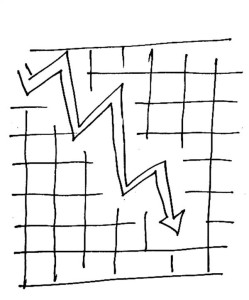
Cotton growth
Sir,
The Cotton Crop Assessment Committee (CCAC) has assessed the area and volume of the current cotton crop in the country. Unfortunately, the prospects for the current season are not so bright, and the country may face a significant shortfall in crop production as well.
The cotton and textile industries play a dominant role in exports; cotton accounts for 55% of the country’s export earnings, and Pakistan has a 14% share of the world’s cloth exports. Record production of cotton was reported at 15 million bales during 2015. The country missed the crop production target by around 30% in 2015-16 and it remained around 10 million bales.
The root causes of decline in cotton sowing are uncertainty regarding cotton prices, increased sugarcane cultivation in the cotton areas and shortage of certified seeds. Viruses and pests affect the yield of Bacillus thuringiensis (Bt) cotton varieties. The cotton leaf curl virus, which is a plant pathogenic virus, significantly stunts plant growth, thereby affecting yield. Pests like white fly, mealy bugs and pink boll worm impact the plants, reducing yield. There is a need for an extensive awareness campaign among farmers for pest management and to prevent rain damage.
Mansoor Ahmed,
Faisalabad.
Better planning
Sir,
According to news reports, the country has spent around Rs 150 billion on this Eid. This means that business in the Sohrab Goth Gai Mandi is probably in billions by itself. It is surprising that when this huge amount of business is being conducted, why are cattle markets not properly maintained?
At night, lighting in the cattle market is not good, so 15-20 floodlights that are installed in stadiums should be installed. Roads should be built inside the cattle market also. Mosques and washrooms should also be built in various locations. CCTV systems should be installed that can cover all areas of the mandi. The present CCTV system covers only a few places. Transport systems for sacrificial animals should be good. Significant parking space is available but because of mismanagement, it is often seen that cars are stuck in traffic, so proper management of car parking should be introduced.
The authorities concerned should take notice of this and start working for 2017 from now.
Mubashir Mahmood,
Karachi.
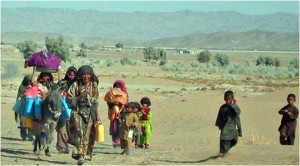
Balochistan
Sir,
The position of thinly-populated Balochistan would have been very weak in an independent united India. The population of the country, as per the 1941 census was about 400 million, and the population of Balochistan was about 0.50 percent of the total. Judging from numerical angle, the emergence of Pakistan was beneficial for the people of Balochistan. Unfortunately, this was made quite impossible by certain elements of the country’s elite. At present, Balochistan is a very important part of Pakistan on account of its geographical factor. Also, the economic factor remains significant with the emergence of CPEC. It is high time we paid proper attention to the province of Balochistan and made all efforts to bring it at par with the rest of the country in terms of development and prosperity.
Taraq Jazy,
Islamabad.
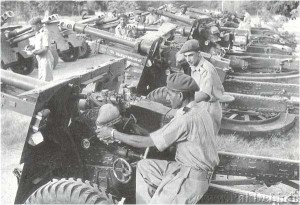
Whither 1965 spirit?
Sir,
I belong to a generation that has first-hand witnessed and experienced the spirit, motivation and emotions of this nation, its sense of unity, discipline and sacrifices during the 1965 war. It was love and devotion for the motherland, a sense of belonging and bonding with men and women of our armed forces and the people who stood by, sharing common goals, which boosted the morale of our soldiers. Today this spirit is unfortunately missing.
Those who were old enough by 1964 would remember that moment you crossed the bridge adjacent to the Lahore Fortress Stadium; it was a different scene, few private houses with numerous barracks for soldiers and officers, an Army Recruitment Centre, armament depots, firing ranges and no commercial shopping centers, other than CSD or Globe Cinema and a bakery. It looked and felt like a garrison zone and few civilians lived there.
Citizens looked up to men in uniform with pride and love, as protectors of their lives, honor and guardians of the territorial sovereignty and integrity of the motherland. Could our valiant soldiers like Shaheed Aziz Bhatti visualize that there could be a scam like DHA Valley in Islamabad?
The Quaid had clearly elaborated that paid civil or uniformed officers should not be involved in politics, nor have any conflicts of interest, and should focus on their designated spheres and roles and the state must curb with an iron hand the curse of bribery and corruption inherited from the British Raj. Similarly, our elected political elite and their families should not be involved in business ventures.
The choice is to continue living in self-denial or accept the need for truth and reconciliation to ascertain causes and address this widening bitter gulf based on ethnicity, sect and self-created class system. It is the collective failure of our leadership, their ambitious adventurism dictated by greed, which they should never have embarked upon, because every institution of this state was expected to perform within its designated sphere of jurisdiction, as clearly elaborated by the father of the nation and the 1973 Constitution.
Tariq Ali,
Lahore.

